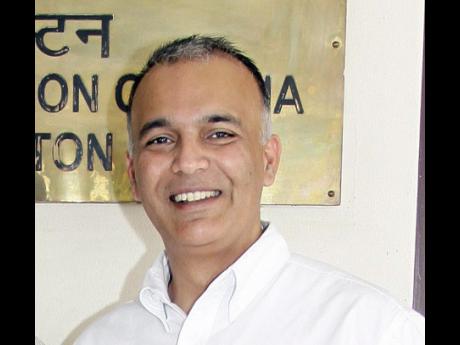Baking delectable possibilities
"Sift the flour carefully, make a cavity, fold in icing sugar, whisk and add eggs, add simmering milk ... ," instructed Asa Kitawaki as she meticulously combined the dry and wet ingredients.
The task at hand was to make Tart au Fruit Frais (fresh fruit pastry), which four lower and upper sixth-form students Tahira Campbell, Rickroy Donaldson, DeAngelo Dawes, and Winston Smith of Rusea's High School, Lucea, Hanover - were creating, under Kitawaki's supervision, from scratch.
On this overcast, rainy afternoon, the exercise was more than training the on precision of measurement, creating fancy continental fare. It had a dash of teamwork, sprinkling of creativity, and oodles of 'out of the box' thinking.
"I would like to see more emphasis on home economics and also planning to build it as a part of the curriculum," Kitawaki, a volunteer of the Japan International Cooperation Agency (JICA) is assigned to Hanover 4-H Club, said.
Kitawaki says the exercise of cooking goes beyond whipping up delectable recipes. According to her, it gives some key life lessons.
She said that it infuses discipline and also encourages the students to be meticulous (as they are with the ingredients), precise, and also think out of the box, should something go wrong in the process.
In the class, eggs were being whisked and folded in the batter as milk was set to be simmered on the gas stove.
She was a cooking instructor in a culinary school in Japan, and said home economics is an important stepping stone for students who want to be chefs.
Kitawaki, whose tenure in Jamaica finishes in October 2018, has a vision to introduce best practices and techniques that will benefit the students.
CREATE NEW RECIPES
"I want to create new recipes, improve the training menu, and it is my goal to introduce licensing and certification of students through 4H Jamaica," she said.
This class that the Rusea's High students were a part of was a pilot cake license course.
Kitawaki said that she has a three-prong objectives: to demonstrate the effectiveness of small class sizes, to determine the costs to conduct the classes and also to determine the effectiveness of the teaching methodologies.
This might be a complex flavour combination, which the 4H officials say they are appreciative of and look forward to implementing.
"This initiative (training students in home economics) is a part of a 4H curriculum experiment and implementation of new methodologies of learning," said Sandra Ramsay, acting regional manager (Western), 4H Club.
"The bigger picture," Ramsay added, "is to use these teaching methodologies as a vehicle for social intervention, equip the youth with key skills that lead towards income generation."
Her colleague, Errol Wynter, parish manager, Hanover 4H, concurred.
"We would like students to be interested in food preparation, and also look into careers in agro-processing," he said.
At the Rusea's High School's Home Economics class, the mission to create Tart au Fruit Frais was coming along just fine.
The dry and wet ingredients had been folded (not briskly and mixed as Kitawaki instructed), the dough for the pastry base, kneaded, cooled, and set in the baking pan time to assemble, pre-heat the oven, and put it to bake.
A NEAR PERFECTION
The four youngsters were patiently waiting to see the outcome of their labour, and to set their sights on what the future might hold for them.
"I would like to be a pastry chef," said Tahira Campbell, a lower sixth-form student. She paused and added. "Well I would like to be a lawyer and also a chef."
Interesting combo, but if one thinks about culinary terms it's akin to introducing pineapple in a savoury dish delectable yet debatable.
Her colleagues DeAngelo Dawes, upper sixth-form student, and Rickroy Donaldson who is in lower sixth, are hoping to work as chefs one day.
"I want to be an executive chef and a well-decorated chef," said Dawes.
"I want to be a naturopath, an entrepreneur, and I want to cook healthy food," said Donaldson.
Winston Smith is as self-professed foodie, speaks lyrically, and wants to be a chef one day, adding that if he didn't take up that career path, he might be a deejay.
He idolises Chef Bobby Flay. "I would love to meet him one day," Smith said.
The aroma from the tart au fruit frais filled the classroom the end products came to near perfection it was a job well done by the students and their instructor was satisfied with their efforts.
After the completion of this pilot course, Kitawaki is hoping to create a curriculum that can be used to teach in schools across the island, and she has started putting her thoughts on paper.
"I hope this can be done before I leave Jamaica," she said, as the skies outside cleared and rays of the evening sun permeated the clouds a divine sign, perhaps.






